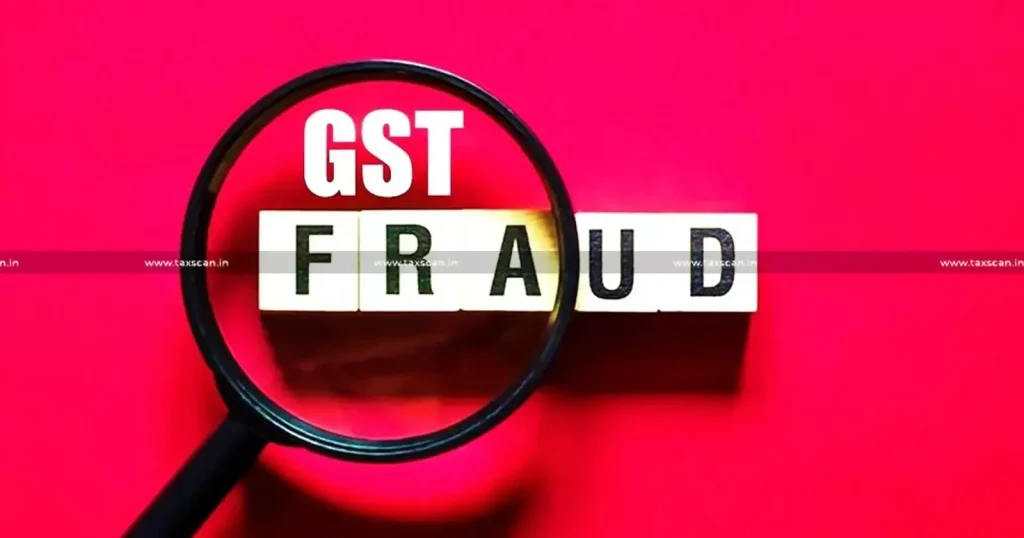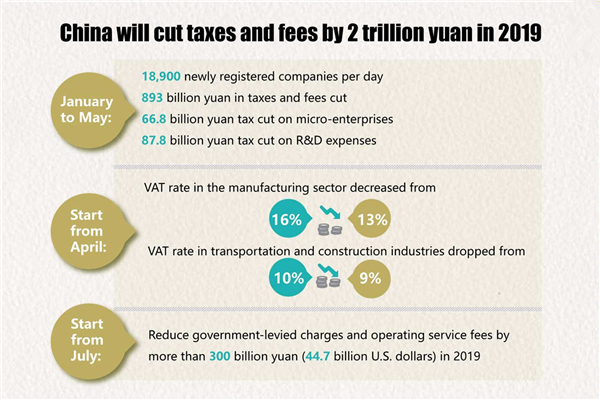GST fraud continues to be a significant concern for the Australian Taxation Office (ATO), as they ramp up their efforts to crack down on fraudulent activities. Recently, four individuals have been jailed for participating in sophisticated schemes that involved the creation of false invoices and inflated GST refund claims. These actions not only undermine the integrity of the GST system but also pose a threat to honest small businesses trying to navigate their tax obligations fairly. Initiatives like the ATO’s Operation Protego highlight the ongoing battle against GST fraud, emphasizing the consequences for those who choose to exploit GST refund schemes. As the ATO warns, the message is clear: engaging in GST fraud can lead to severe penalties, including imprisonment, for all involved parties.
The issue of tax fraud, particularly related to the Goods and Services Tax (GST), has prompted a sharp focus from regulatory bodies, notably the Australian Taxation Office (ATO). This illegal activity manifests in various forms, such as the submission of fake invoices and egregious claims for refunds linked to fictitious business operations. Recent enforcement actions under campaigns like Operation Protego illustrate the ATO’s commitment to addressing these fraudulent schemes effectively. Notably, small businesses, often seen as the backbone of the economy, remain at risk as they are squeezed by competitors employing deceptive tactics to gain unfair advantages in tax refunds. As the landscape shifts, it is essential for legitimate businesses to stay informed and vigilant against GST fraud, ensuring compliance with tax regulations and safeguarding their operations.
Understanding ATO’s Crackdown on GST Fraud
The Australian Taxation Office (ATO) has ramped up its efforts to combat GST fraud, implementing strategies aimed at strengthening compliance and detecting fraudulent activities. Recent developments have highlighted the severity of the issue, revealing that thousands of offenders have been targeted. The ATO’s Operation Protego is central to these initiatives, scrutinizing schemes that utilize fake businesses and false invoices. Businesses involved in fraudulent GST claims risk severe penalties, fostering a sense of urgency amongst companies to ensure their practices align with legal standards.
The ATO’s dedication to combating GST fraud is underscored by the staggering number of offenders investigated and the multi-million dollar penalties incurred. As the ATO continues to clamp down on these illegal practices, legitimate businesses are advised to remain vigilant. Understanding the implications of ATO guidelines can help ensure compliance while assisting in maintaining fair competition within the market, especially as Operation Protego reveals more sophisticated fraudulent networks in both small and large enterprises.
The Rise of Fraudulent Invoices in Small Businesses
Fraudulent invoices are becoming a significant concern for small businesses, particularly as the ATO warns of increasing activities that involve false GST claims. Small business owners must recognize the potential risks involved with misreporting GST, as such actions not only lead to financial penalties but can also diminish their reputations. As the ATO investigates fraudulent claims in the construction and property sectors, this serves as a reminder for small businesses to be wary of the invoices they accept and the accuracy of their GST reporting.
Moreover, the creation of fake entities that generate fraudulent invoices raises alarm bells for the ATO. The agency emphasizes that valid business activities must be backed by verifiable evidence, including legitimate invoices and contracts. Entrepreneurs should foster a culture of transparency and accountability, ensuring their GST claims are substantiated by actual transactions. This vigilance will reduce the likelihood of falling victim to scams and participating unknowingly in GST fraud.
The Impact of Operation Protego on the GST Landscape
Operation Protego has reshaped the landscape of GST compliance and enforcement within Australia. By targeting numerous fraudulent activities, the operation is designed to deter dishonest practices in both small and large businesses. As more fraudsters face legal consequences, the message becomes clear – manipulation of GST refund schemes will not be tolerated. Businesses must strive to align with the ATO’s expectations of integrity and accountability.
The success of Operation Protego can also be seen in the substantial penalties imposed on convicted fraudsters, which serve as a cautionary tale for others considering engaging in similar activities. The implications of such enforcement measures are profound; they promote a healthier financial ecosystem where genuine businesses can thrive. As the ATO continues to enhance its detection capabilities, entities must remain proactive in ensuring their GST claims are authentic and within compliance.
Recognizing Red Flags in GST Claims
Identifying red flags in GST claims can prevent businesses from falling prey to fraudulent schemes. The ATO alerts indicate specific indicators that suggest manipulation, such as excessive claims, lack of supporting documentation, and inconsistent financial records. Business owners must be educated not only about their obligations but also about the signs that could signal potential GST fraud in their operations.
Additionally, businesses should actively engage in regular audits of their GST activity statements and ensure all invoices are genuine. Claims for non-existent services or inflated expenses should be critically evaluated. By fostering a keen eye for questionable transactions, businesses can protect themselves from the repercussions of inadvertently participating in GST fraud.
Consequences of GST Fraud: Beyond Financial Penalties
The consequences of engaging in GST fraud extend beyond financial penalties; they include potential imprisonment and irreparable damage to a business’s reputation. The ATO is clear that individuals involved in fraudulent schemes face severe legal repercussions, underscoring the seriousness of these offenses. Firms found guilty not only overpay taxes but risk being barred from future opportunities, losing valuable partnerships and customer trust.
The implications can also reverberate through the entire business ecosystem, affecting supply chains and partnerships. Customers increasingly prioritize integrity; thus, a reputation marred by involvement in fraudulent activities can lead to diminished consumer confidence. For these reasons, adhering to ATO guidelines and practicing honesty in financial reporting is critical for long-term sustainability and growth in today’s competitive environment.
Voluntary Disclosure: A Path to Compliance
For businesses that may have engaged in questionable GST practices, making a voluntary disclosure can be a crucial step toward compliance. The ATO encourages such disclosures as a means of mitigating penalties and demonstrating a commitment to rectify past mistakes. This proactive approach can significantly lessen the consequences faced by non-compliant entities.
Moreover, early cooperation with the ATO enhances the chances of a more favorable outcome. By voluntarily coming forward with any inaccuracies or fraudulent activities, businesses not only comply with the law but also gain invaluable insights into correct GST practices, ensuring they operate within the framework established by the ATO moving forward.
The Role of the ATO in Educating Businesses on GST Compliance
The ATO plays a vital role in educating businesses about GST compliance guidelines and the importance of maintaining accurate records. Through its various alerts and resources, the ATO equips businesses with the knowledge needed to navigate the complex landscape of GST regulations effectively. By being proactive about compliance training, business owners can protect themselves from potential mishaps and ensure their claims are legitimate.
Furthermore, the ATO’s commitment to transparency fosters a collaborative environment where businesses can access current information on best practices and emerging threats. This partnership between the ATO and businesses is crucial to promoting fairness in the taxation system and ensuring that all players, especially honest small businesses, can compete on a level playing field.
Future Trends in GST Fraud Prevention and Detection
As GST fraud detection technology continues to evolve, businesses must stay abreast of future trends and the ATO’s strategic responses. The integration of advanced data analytics and machine learning into fraud prevention measures is revolutionizing the way the ATO identifies and addresses fraudulent behavior. Businesses can expect heightened scrutiny as these sophisticated tools become increasingly refined.
Additionally, corporate governance and ethical practices are likely to play a more significant role in preventing GST fraud. As compliance becomes more critical, businesses should prioritize ethics over profit maximization. Establishing robust internal controls and fostering transparent relationships can help curb fraudulent practices before they start, reducing risks associated with integrity violations.
Maintaining Integrity Amidst Increased ATO Scrutiny
As the ATO intensifies scrutiny over GST practices, maintaining integrity becomes paramount for businesses. This means ensuring all GST claims are legitimate, substantiated by appropriate documentation, and compliant with regulatory standards. Small businesses, in particular, need to prioritize transparency to avoid the pitfalls of questionable practices that can lead to severe legal consequences.
Moreover, fostering a culture of accountability, where employees are trained to understand the importance of accurate reporting, can help safeguard the business from the risks associated with GST fraud. By aligning their operations with ATO standards, businesses not only support a fair marketplace but also promote their long-term viability in a highly competitive environment.
Frequently Asked Questions
What is GST fraud and how does it relate to the ATO’s crackdown?
GST fraud refers to dishonest practices aimed at obtaining GST refunds unlawfully, such as submitting fraudulent invoices or creating fictitious businesses. The Australian Taxation Office (ATO) has intensified its crackdown on these activities, particularly through Operation Protego, resulting in numerous convictions and substantial penalties.
How does Operation Protego impact small businesses and GST claims?
Operation Protego actively targets GST fraud, focusing on false businesses and fraudulent GST claims. This initiative aims to protect legitimate small businesses from being undercut by dishonest competitors exploiting illegal GST refund schemes, ensuring a fairer market environment.
What types of fraudulent invoices are involved in GST fraud?
Fraudulent invoices involved in GST fraud may include entirely fictitious invoices, claims for services that were never rendered, or multiple entities claiming GST credits for the same invoice. These deceptive practices are now a significant concern for the ATO, adversely affecting genuine businesses.
What steps can small businesses take to avoid GST fraud accusations?
To avoid accusations of GST fraud, small businesses should ensure all GST claims are backed by legitimate documentation, including accurate invoices and receipts tied to actual business activities. It’s also crucial to regularly review GST arrangements and comply with ATO guidelines.
What are the potential consequences of engaging in GST fraud?
Engaging in GST fraud can lead to serious consequences, including interest charges, substantial fines, criminal prosecution, and referral to the Commonwealth Director of Public Prosecutions. The ATO’s proactive measures aim to deter such behavior and uphold the integrity of the tax system.
What is the importance of making a voluntary disclosure regarding questionable GST claims?
Making a voluntary disclosure concerning questionable GST claims is vital for mitigating potential penalties. By proactively informing the ATO about any irregularities, businesses can demonstrate cooperation and possibly benefit from reduced consequences compared to waiting for the ATO to act.
How can small businesses ensure their GST refund claims are legitimate?
Small businesses can ensure the legitimacy of their GST refund claims by keeping thorough records, maintaining accurate invoices, and performing regular audits of their business activity statements (BAS). Consulting with tax professionals for compliance can also help safeguard against unwarranted claims.
What are the ATO’s warnings about schemes for fraudulent GST refunds?
The ATO warns against schemes that promise inflated GST refunds through paper shuffling, such as claiming credits for non-existent construction costs or intangible services. Any overly complex or dubious arrangements designed to generate GST refunds can lead to serious legal ramifications.
| Key Point | Details |
|---|---|
| GST Fraud Overview | The ATO is intensifying efforts to combat GST fraud, particularly already detecting sophisticated schemes like fake businesses and inflated refund claims. |
| Operation Protego | A specific operation by the ATO targeting GST fraud, resulting in over 57,000 alleged offenders and multiple criminal convictions. |
| Sentences of Fraudsters | Recent sentences include individuals receiving jail terms for significant fraudulent GST claims, including two former ATO employees. |
| Impact on Small Businesses | Legitimate businesses may benefit from reduced illegal competition, but they must ensure compliance with GST requirements. |
| Common Fraud Schemes | The ATO warns about fraudulent invoices and inflated claims currently affecting properties and construction sectors. |
| Advice for Businesses | Businesses should maintain accurate records and consider voluntary disclosure of any questionable GST arrangements. |
Summary
GST fraud is a serious concern that the Australian Taxation Office (ATO) is actively combating through measures like Operation Protego. Recent reports of fraud, including cases with significant jail time for offenders, highlight the stakes involved. The ATO warns legitimate businesses to beware of fraudulent activities that could undermine their operations, particularly in sectors prone to these schemes. By adhering to regulations and maintaining integrity in GST claims, businesses can ensure they remain competitive and compliant.



